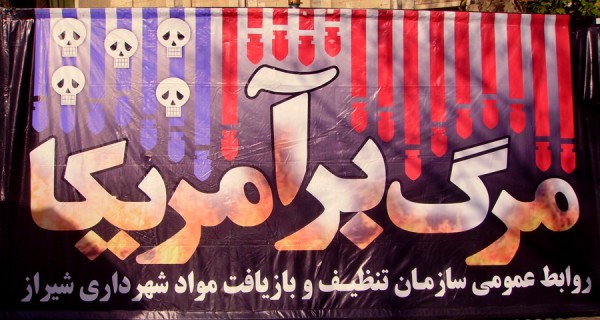Is a Western-Iranian alliance really the solution?
Mohammed Fahad al-Harthi/Al Arabiya/Saturday, 18 July 2015
Some politicians and analysts keep reiterating that the West has an interest in taming Iran and forming an alliance with it. They consider Sunni extremism as the fuel for the region’s crises and the reason for the creation of al-Qaeda and ISIS. Based on this assumption, they call for a fundamental change in the current political situation in our region. These calls coincide with the signing of the deal with Iran. Despite its condemnation of the “Great Satan,” Iran has been caught sleeping with the devil. Now Tehran has taken a calmer approach toward Uncle Sam and is calling for openness and talking about mutual interests.
The Iranian regime came to power with the idea of exporting its revolution and ideologies to other nations
Probably the article by Sir Christopher Meyer, former British ambassador to the U.S., in The Daily Telegraph, conveyed this sense when he said that the West’s interests are with the Iranian Shiites and not with the Arab Sunnis. He believes that fighting ISIS and other extremist organizations requires an alliance with Iran.
Simplifying the political situation
What is dangerous is that these calls simplify the political situation in the region and repeat strategic mistakes previously made by the West from which they did not learn. Iraq, which was destroyed by an American invasion, was then torn apart from the inside and handed as a gift to the Iranians. The late visionary Prince Saud al-Faisal told the Americans in a speech at the U.S. Council on Foreign Relations, “We waged a war together to eject Iran from Iraq after ejecting Iraq from Kuwait and now we are giving the whole country to Iran for no reason.” Unfortunately, despite its history and origins, Iraq now falls under Iranian dominance.
The game of alliances in the region is a serious one and the political history shows how alliances and external interventions lead to tragic results. Despite efforts to portray the conflict as a Sunni-Shiite one, it is a purely political dispute based on different political ideologies. The Iranian regime came to power with the idea of exporting its revolution and ideologies to other nations and using religious beliefs in politics. At the same time, political thought in the Gulf aims to avoid problems and wars and use diplomatic channels and economic interests instead. This has led those states away from the idea of revolution and other similar phenomena.
Region’s internal politics and social structure
Sir Christopher wrongly believes that the situation in the region came about at the push of a button. This shows what I believe is his ignorance of the region’s internal politics and social structure. Any mistake will lead the West to being trapped in quicksand and will need an expert who understands the complexities to solve the problems. Iran’s politics, even during the period of sanctions, was to interfere in Arab affairs and support militias which made it a permanent part of the problem. It would be politically naive to believe that Iran will turn into a state with good intentions once the sanctions are lifted.
Politics uses the language of power and instead of speaking about a change in strategic alliances in the region as if it were a prize for troublemaking countries, the discourse should aim to have a commitment by Iran to stop its intervention in Arab states and respect their sovereignty. Such a commitment should happen through the Security Council in order to ensure effective implementation.
Correcting one mistake with another is not good politics. ISIS and the other terrorist organizations are a product of the West’s inaction in Syria which allowed the extremists to expand. The sectarian policies of former Iraqi Prime Minister Nouri Al-Maliki contributed to the increase of sectarianism in Iraq and marginalized the main sections in Iraqi society.
Security breakdown
These factors gave rise to a security breakdown which led a third of the state to fall within hours. Consequently, the situation cannot be resolved by ignoring these issues. Understanding basic reasons is a way to develop appropriate solutions and those solutions start from the current opportunity. This agreement gives Iran the opportunity to continue its expansionist policies. This will open a nest of vipers in the region and launch a series of wars that will not only destroy the whole area but will also harm the West and the entire world.
Despite all the changes in the region, the GCC, along with the principal Arab states such as Egypt, Jordan and Morocco, remains the Arab world’s safety valve as their moderate policies aim to avoid conflicts and crises. Major powers have a responsibility to promote peace and security in the region.























